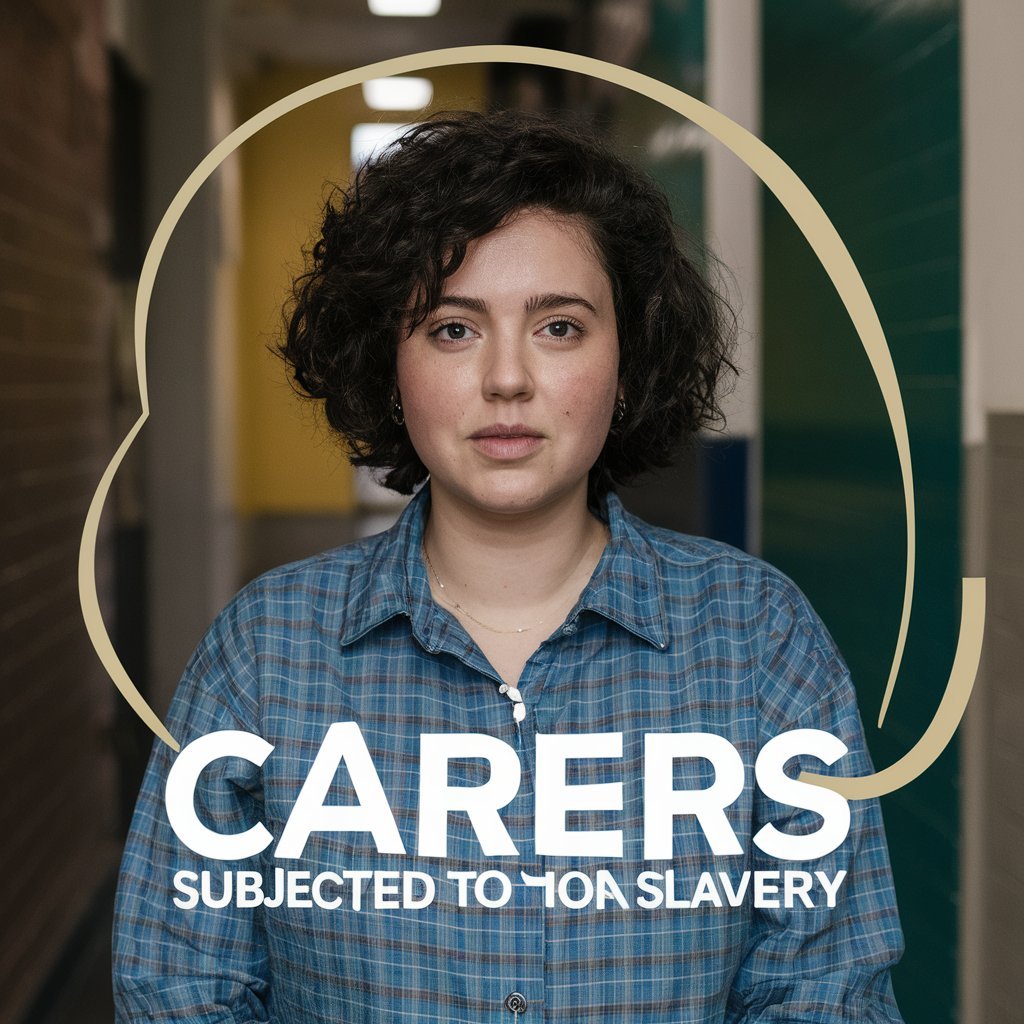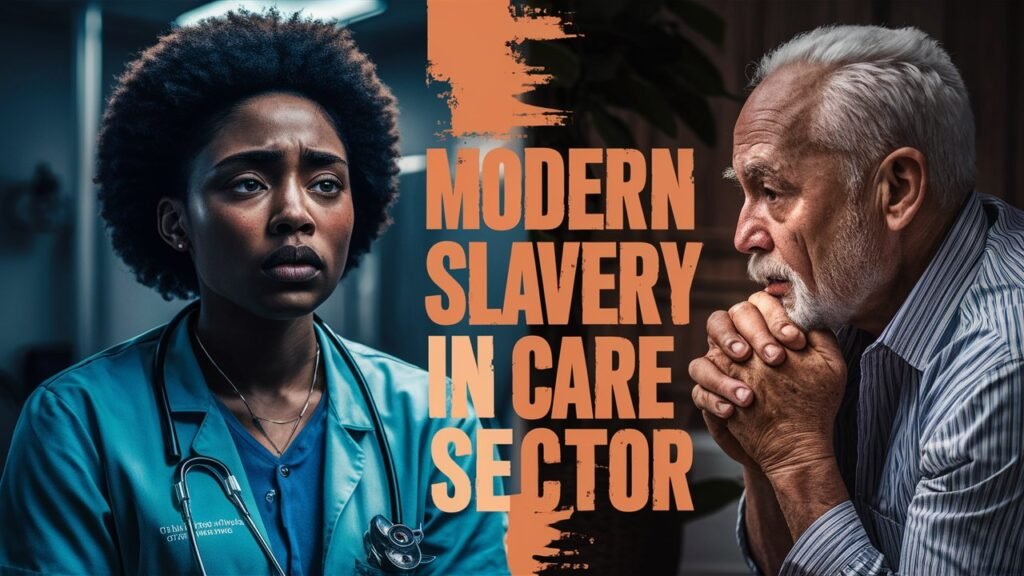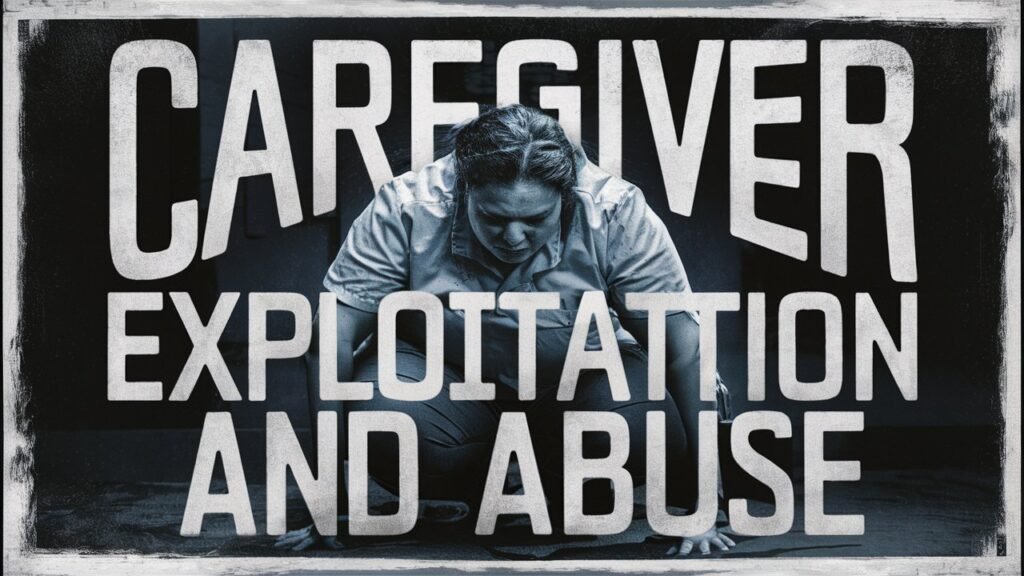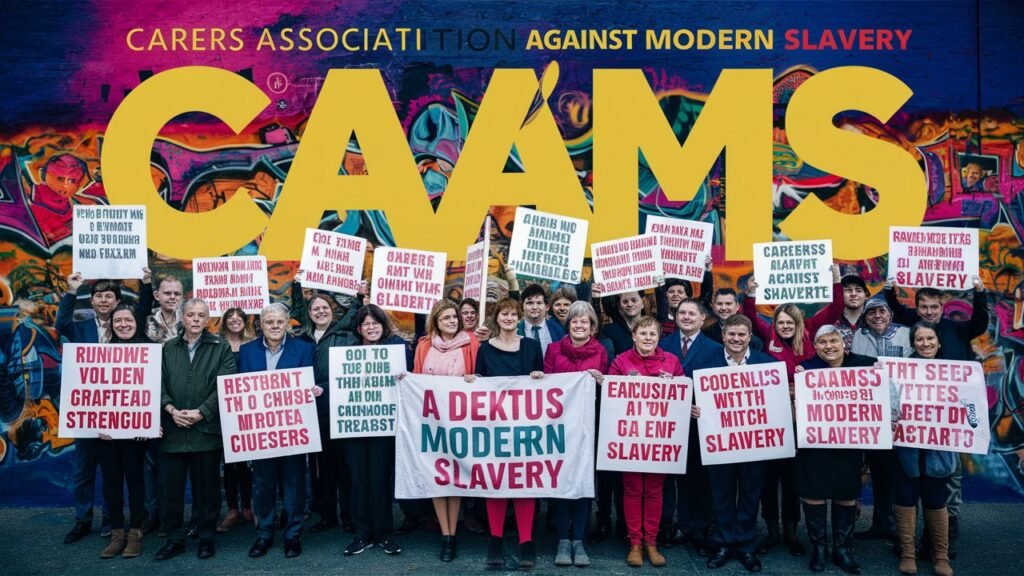To learn more about the work of Social Care Research Ltd click on the button below:
OUR RESEARCH FOCUS
01. Modern Slavery Research

We conduct comprehensive research on modern slavery, investigating the root causes, prevalence, impact on carers and provide recommendations for prevention and intervention.
- Explore the issue of paid carer exploitation in UK care settings, shedding light on the root causes and impact on both the carers and the individuals receiving care. Provide insights on how this exploitation can be prevented and offer recommendations for intervention.
- Investigate the violations of migrant carer rights in the UK, highlighting the prevalence of such issues and the challenges faced by migrant carers. Offer recommendations on how to protect the rights of migrant carers and ensure fair treatment in care settings.
- Launch awareness campaigns to educate carers as well as the public about modern slavery in UK care settings, focusing on the importance of recognising the signs of exploitation and taking action to prevent it. Collaborate with organisations and stakeholders to raise awareness and promote a culture of zero tolerance towards modern slavery in care settings.

02. Technology Enabled Care Research

At Social Care Research, our Technology Enabled Care (TEC) research investigates how digital tools and innovations are reshaping the delivery of health and social care services. We focus on understanding the opportunities and challenges associated with integrating technologies such as remote monitoring systems, AI-powered applications and digital communication platforms into care practices.
Our research examines the adoption and impact of TEC across diverse populations, with particular attention to older adults, carers and Black, Asian, and Minority Ethnic (BAME) communities. We explore factors influencing digital inclusion, including access to devices, digital literacy, and infrastructure, as well as the role of culturally tailored information in facilitating engagement with care technologies.
We also assess the implications of TEC on care quality, workforce practices, and ethical considerations, such as data privacy and the balance between technological assistance and human interaction. By collaborating with stakeholders, including service users, care providers, and policymakers, we aim to generate evidence-based insights that inform the development and implementation of inclusive, effective and ethical technology-enabled care solutions.

03. Care Inequalities Research

- Conduct a deep dive into the disparities in access to healthcare services, examining the factors that contribute to unequal care and proposing potential solutions to address these issues.
- Explore the impact of social determinants of health on individuals’ well-being and healthcare outcomes, shedding light on the root causes and their effects on overall health outcomes and disparities in later life.
- Develop evidence-based policy recommendations to address disparities in healthcare access and promote equitable health outcomes for all individuals, regardless of their background or socioeconomic status.

What are the likely causes of unequal Care?
Disparities in access and quality of care continue to exist even in countries with welfare systems that provide universal healthcare. Could the issue lie in the individual's capacity to negotiate for a better social care package, or is it rooted in the intricacies of personalised care plans? It is possible that certain care recipients may lack the knowledge to determine what is most beneficial for their well-being.
01.
Awareness and Information Gaps
Not everyone is aware of the services available or understands how to access them. Those with better education or social networks often have a significant advantage.
02.
Homelessness
Homeless individuals face significant barriers to accessing social services, exacerbated by the lack of a permanent address and challenges in navigating the system.
03.
Geographical Disparities
Urban centers typically enjoy better-funded and more readily available services compared to rural areas, where resources are often stretched thin.
04.
Economic Inequality
Wealthier individuals can supplement public services with private care, while those on lower incomes must rely solely on often overstretched public provisions.
05.
Cultural and Language Barriers
Non-native English speakers and people from diverse cultural backgrounds may struggle to access appropriate services due to language barriers and a lack of culturally sensitive care.
06.
Policy and Administrative Barriers
Bureaucratic hurdles, such as lengthy application processes and complex eligibility criteria, can deter or delay individuals from receiving the care they need.
07.
Variation in Local Authority Funding
The allocation of social care funding is managed by local authorities, leading to inconsistencies in service quality and availability.
08.
Age Discrimination
Older adults may experience ageism, resulting in less attention and fewer resources allocated to their care.
09.
Health Inequalities
Those in poor health may find it harder to navigate the system or advocate for their needs, leading to unequal access to necessary care.
- SHARE YOUR STORY OF UNEQUAL CARE WITH US BY SENDING IT TO info@socialcareresearch.co.uk
04. Carer's Well-being Research

- Conduct a series of in-depth carer stress studies to better understand the challenges faced by carers, including the impact on their physical and mental health. Share the findings to raise awareness and advocate for better support systems. By understanding the specific stressors that carers encounter, we can develop targeted support programs to address their needs effectively.
- Evaluate existing support programs for carers to determine their effectiveness in promoting their well-being and identify areas for improvement. Develop and implement new support initiatives based on the evaluation results to enhance the overall well-being of carers. By analysing the impact of these programs, we can identify areas for improvement and enhance the support mechanisms available to carers.
- Advocate for policy changes and improvements to better support carers, based on our research findings. Work with policymakers and stakeholders to create a more supportive environment for carers and improve their overall well-being. By engaging in policy advocacy, we can work towards creating a more supportive environment for carers and ultimately enhance their overall well-being.

05. The Carers Association Against Modern Slavery (CAAMS)

The Carers Association Against Modern Slavery (CAAMS) is a pivotal project that has emerged from our extensive research efforts. This initiative aims to empower carers who are subjected to exploitative and inhumane treatment within private UK homes and care homes. The project’s main objective is to provide care workers with a unified platform to advocate for fair compensation and improved working conditions within the care sector. Through CAAMS, we strive to give these individuals a stronger collective voice that will enable them to negotiate for their rights and dignity as valuable members of the healthcare workforce.
- Dedicated to eradicating modern slavery
- Protection and empowerment of all carers
- Ensuring punishment for perpetrators

- Are you carer?
Have you heard about CAAMS?
The Carers Association Against Modern Slavery (CAAMS) is a groundbreaking project that was launched in response to our research findings. The purpose of this project is to support and empower carers who are at risk of being exploited and mistreated in UK private homes.
- THERE IS STRENGTH AND SAFETY IN NUMBERS.
Why Not Join CAAMS Today!
Join us on this transformative journey as we equip you with the knowledge, insights, and tools needed to combat modern slavery within social care. Together, let’s bring about tangible change and create a future where every carer is treated with dignity and respect.
